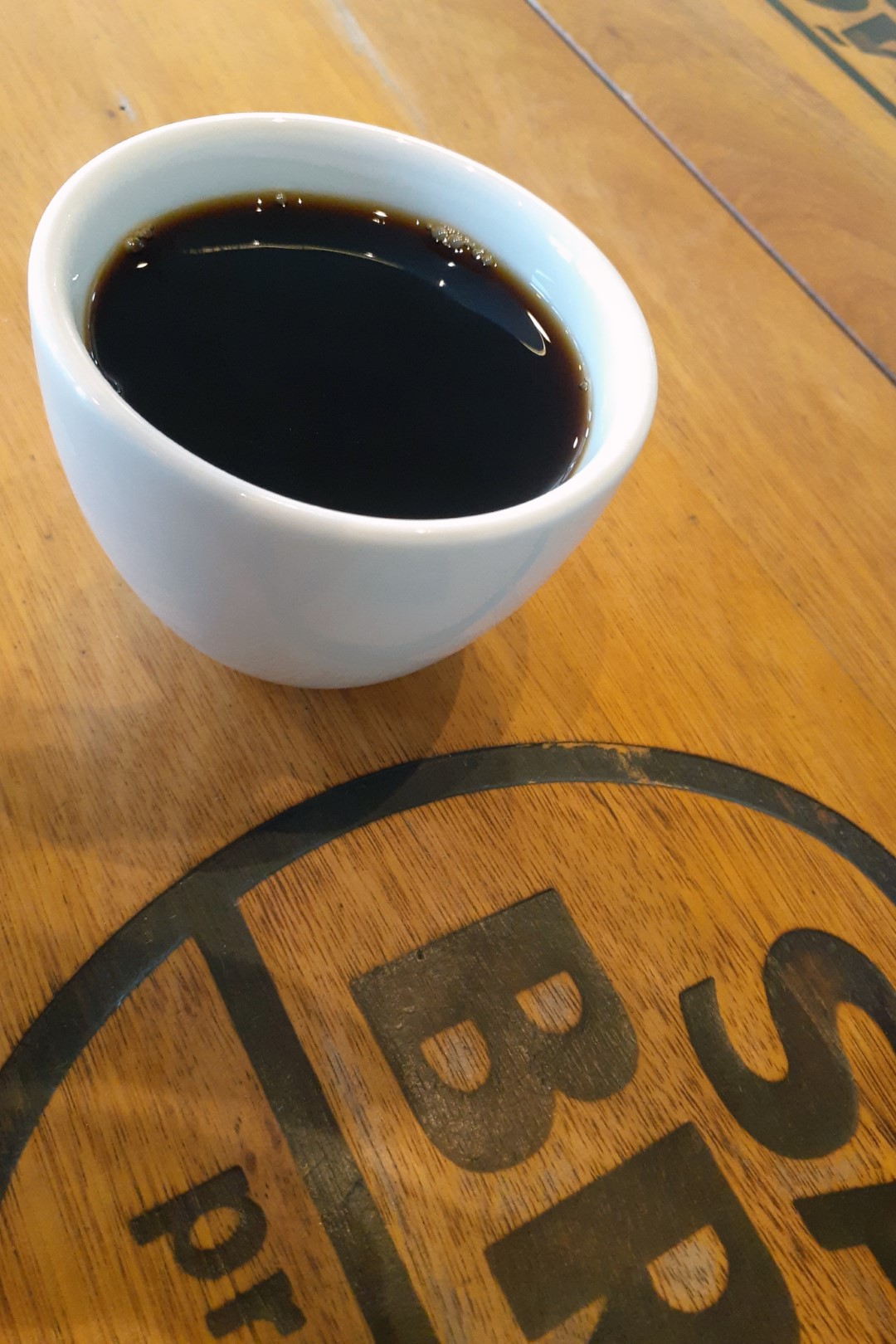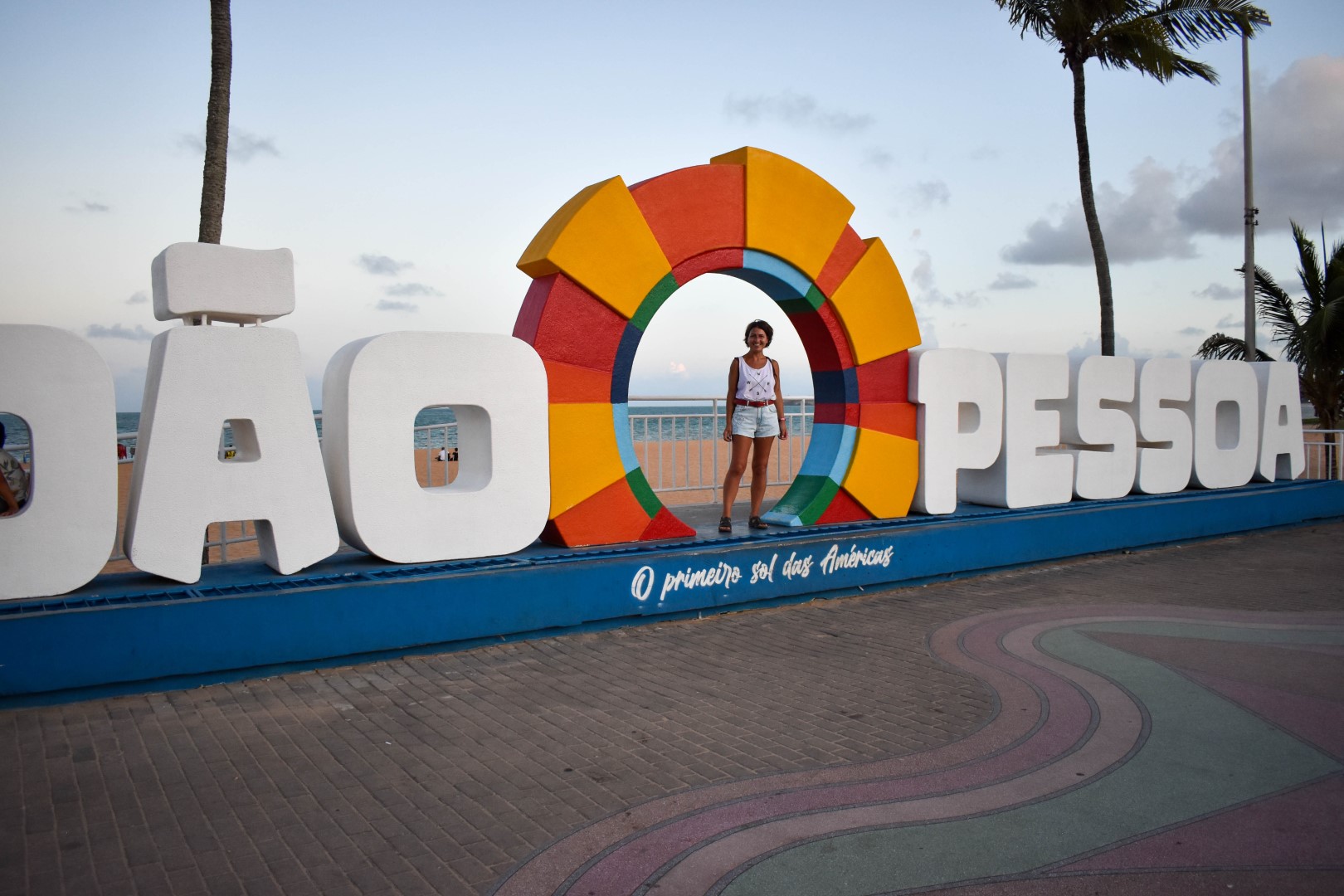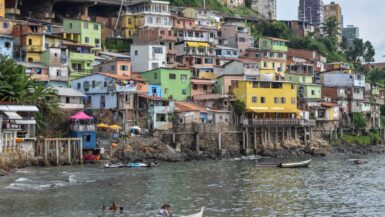As far as I know, Brazilian bus terminals all look the same, and none looked like they’ve been designed by Oscar Niemeyer—picture giant, uninspiring blocks of concrete with buses taking passengers to the next city or unlikely destinations across the country, hell, even across the continent sometimes (don’t expect a direct ride, though).
The process is always the same as well. Passengers used to walk around to find the right company, check out schedules and compare prices, but these days, everybody buys bus tickets online, including yours truly. Most companies offer the “passagem no celular” option, an e-ticket with two QR codes—one to access the departure area and another to board the bus. Fun fact, scanning QR codes isn’t faster than showing a paper ticket—“zoom in… no, zoom out… oh whatever, let me turn the turnstile for you, alright?”
By then, you’re probably a sweaty mess. There’s no air con because bus terminals are open on all sides, no doors. Or maybe you found a seat in a VIP room, if your bus company has a dedicated waiting lounge, lucky you. Either way, you must have drunk two litres of water (or coffee, for madrugada departures), so time to pay one real for a quick bathroom break—there are toilets in most long-distance buses but trust, you’d rather use the bus terminal sanitários. Travelling alone? Quad exercise coming up, peeing with your backpack on your shoulders is quite an experience.
Done? Now find your plataforma and give your backpack to a guy who will confirm your destination, load it in the underneath luggage compartment and give you a ticket with a number printed on it. Do not lose the receipt. Only stupid gringas can get away with getting their luggage back without a ticket once at their destination.
Time to board. Show your ticket QR code to the driver, and a piece of ID, and enjoy the ride or just pass out if you got up way too early.
I booked the 11 a.m. bus from Natal to João Pessoa, which is much more reasonable than the 6:30 a.m. Fortaleza to Natal—it’s a shorter trip too, only 3.5 hours.
I was just about to close the curtain to avoid the blinding sun when I heard an intriguing and familiar word—“ask the rapaz!” the driver had just told a passenger.
“The rapaz followed me to the terminal!” I thought.
This word was new to me. I first heard it in Natal, in the mouth of my Airbnb host when we were discussing the various plumbing issues, and especially the leak.
“I went upstairs and talked to the rapaz!” “The rapaz said the tap is closed now!”
The leak was getting worse and worse, and every time my host was stopping back to check it out, a rapaz was mentioned.
My Portuguese is decent enough by now. I understand pretty much everything people say, except for a few words here and there. Sometimes, I guess from context—my sink was clogged, so obviously I needed a desentupidor, for instance (not that I’m planning to use the word “plunger” much but hey, you never know). Spanish and French help a lot too, there are lexical similarities. Rephrasing or just asking what something means is also an option.
I mean, I learned Chinese, English and Spanish, I enjoy deciphering languages until they make sense and until I make sense.
But rapaz? This one was a mystery. Sometimes, Brazilian Portuguese branches out in interesting ways, shows its style as a unique language. Like frango, for instance, which is nowhere close to pollo or poulet—etymology of “chicken” unknown.
Rapaz was my new frango.
The first time I heard my Airbnb host mentioning rapaz, I thought it was a first or last name because he had just talked to someone upstairs about the leak—don’t get me started on Brazilian names, they are… quite unique, from Wagner to Bruna, from Thiago to Kaique, with Japanese, German and Portuguese last names.
So yeah, maybe someone’s name was rapaz.
I was picturing a vulture. Not because I was particularly upset at the leaky whatever from upstairs, but because it sounded like “rapace,” “vulture” in French.
And now the vulture was at the bus station.
So I guess rapaz wasn’t a person.
I could have Googled the word and solved the mystery right there but I let my mind toy with the word for a bit.
I finally looked it up when we arrived in João Pessoa—it means “young man.” How come I had never heard it before? Or maybe I didn’t pick it up? I’m adding it to my lexicon of the many words Brazilians have for “guy”—moço, menino, garoto…








Hahaha that’s brilliant. I, too, immediately thought of rapace and it sounded vaguely frightening 😉 are the buses as comfortable as what is described in Peru ?
Brazilian long-distance buses are awesome! So much more comfortable than planes…
> desentupidor
What we really need is a desenStupidor. And I’m not just thinking to use it on Dougie, Poilièvre or Zemmour.
I think we need something stronger for them. They are really, really stuck somewhere nasty :-/
[…] I’m not a woman of mystery, I’m just a woman who loves mysteries. […]
[…] tell you more about João Pessoa this week. For now, here is the coast of João Pessoa, with the very famous Praia […]
[…] we spent Christmas and New Year in Mexico, then in Brazil, I stopped in São Paulo, Fortaleza, Natal, João Pessoa, Recife, Rio de Janeiro, São Paulo again, Maceió and Aracaju—I didn’t feel the […]